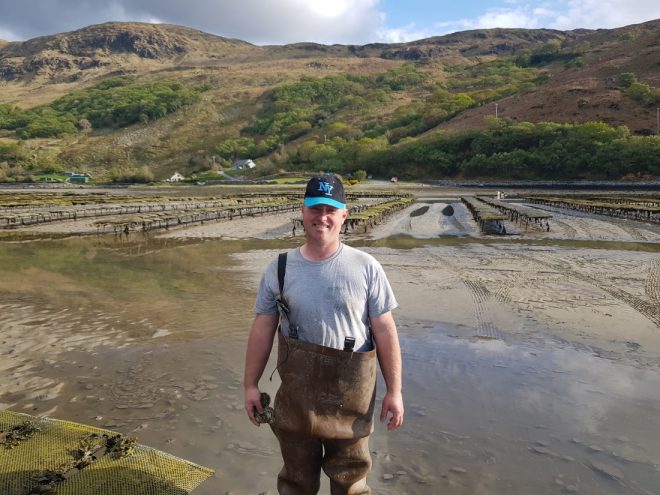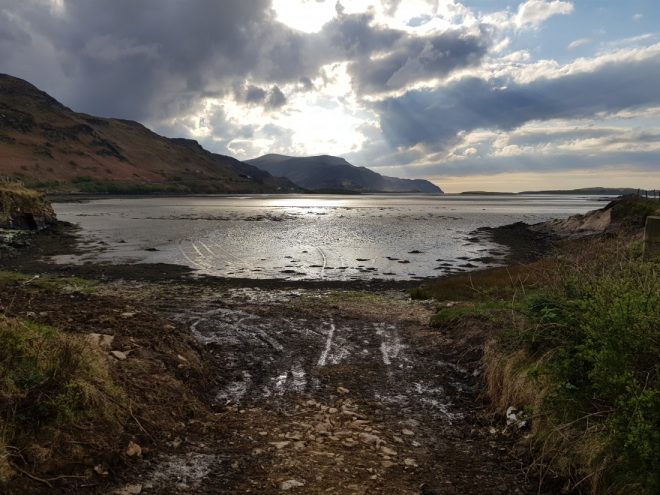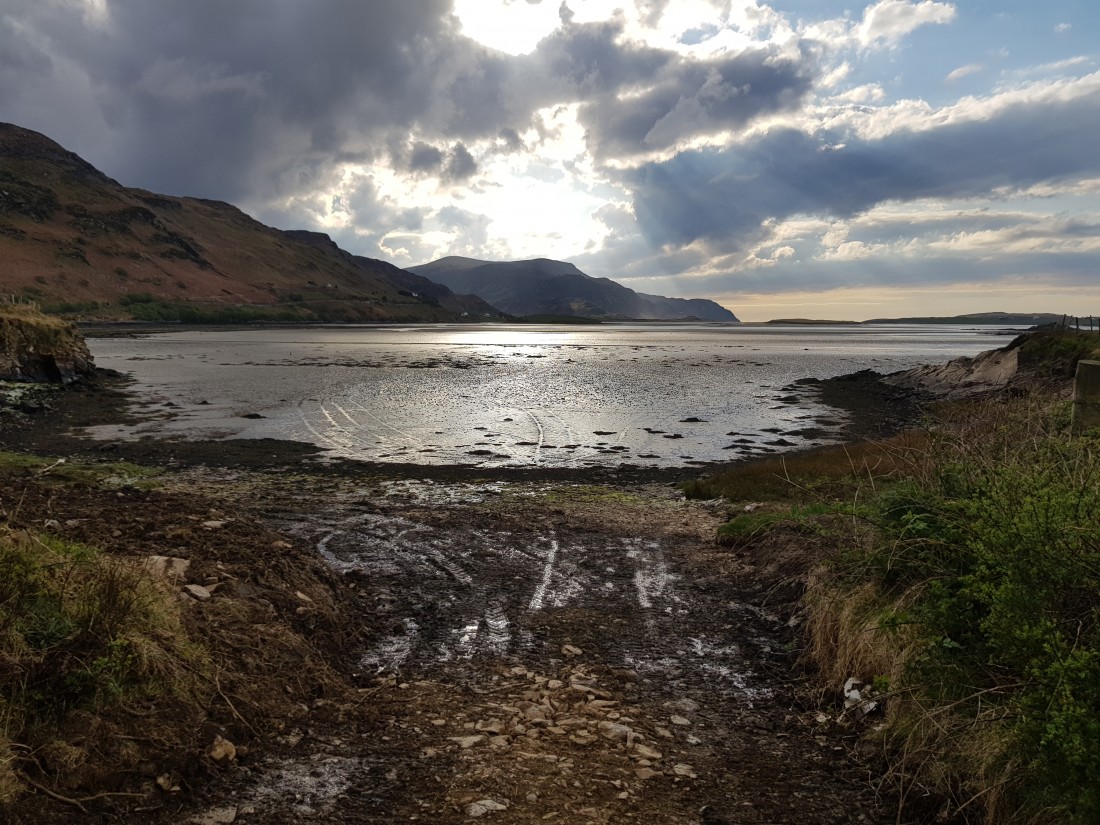
On Loughros Beg Bay, local oyster farmer Charlie McHugh continues to work the tide, tending his meshed cages.
With the Asian market particularly buoyant towards the end of last year and good prices to be got for oysters he was optimistic heading into the spring. However, the coronavirus outbreak is now threatening his future.
Mr McHugh runs Loughros Beg Specials Oyster farm in the crystal clear waters off the Ardara coast. The small family-owned company was started by Packie McHugh, Charlie’s father, and Vincent Gavigan back in 1984.
Without a viable market, oysters that are just reaching maturity will soon grow past their prime size for retail sale. Further complicating the process, mature oysters need to be sold to clear space for fresh seed, grown at hatcheries in France, which take up to four years to reach maturity.
Loughros Beg Specials grow and sell more than one million oysters annually and without a crop in progress, these are worrying times.
“It’s nobody’s fault that the market has collapsed but it’s frustrating that we have a four-year-old product and we have nowhere to go with it. That said, we have to keep going. We have to keep turning the oysters and hope that they’re still living until September when, hopefully, markets open up once more,” he explained.
Charlie took over the business when his father retired more than twenty years ago.
“My dad was a weaver and he took an interest in the oysters. At the very beginning he didn’t really have a market for them. Unfortunately, Irish people don’t eat very many oysters compared to France and Asia.
“Our oysters are packed in France and shipped all over. The Asian market, for example, was phenomenal for us before Christmas,” he said.
Loughros Beg Specials oysters are harvested under the strictest quality control.
“We cultivate the Specials oyster by grading and washing them every twenty one days and returning them to the sea. The oysters take four years to reach market size,” Charlie McHugh said.
“We generally process between 10,000 to 20,000 oysters per day,” he added.

McHugh said that they export all their oysters, selling them across France, Europe and Asia.
“There are three to four different types of oyster but we find that the Specials are the best. They’re meatier and have a better taste coming from the clean waters of the bay and the tributaries coming down from the hills feeding into it.
“In our bay it takes four years to grow a Specials oyster. We find that the slower the oyster grows the better. It also means they will be hardier and better suited to travel,” he said.
Once the product is harvested it is shipped to France where the oysters are put back into the water to purify them before being boxed and shipped all over France, the rest of Europe and Asia.
“We don’t have the tanks to purify the oysters here. They have to be purified for forty-eight hours before human consumption so we transport them live by refrigerated lorry to France,” he explained.
This week usually signifies the start of the harvest season which continues right through to Christmas time.
“We would normally try to do two to three ton a week and, for the summer months, we would employ ten full-time workers,” he said.
The end of April also brings to a conclusion the seeding season – a process which starts in January – and sees more than one million seeds, grown at hatcheries in France, planted in the bay.
While Mr McHugh and his workers have enjoyed the sun at their backs on the unusually warms afternoons throughout much of April, working conditions are not always so kind.
“Stepping into the tide at 4.30am on a cold, wet, dark January morning is not easy at times but I suppose we’re lucky enough to have the work,” he admitted.
At any given time, there’s up to ten million oysters growing on suspended structures in the waters of Loughros Beg. There is a thirty per cent mortality rate while the Red Tide of 2015 destroyed the entire crop and they had to start all over again.
They work the farm five to six days every week, stepping out in waders at low tide to take in the oysters they need to work. They are then taken to the factory, graded, cleaned and put into bags and sent back out into the bay or prepared for harvest depending on their size.
“We work five to six days every week and take a few weeks off around Christmas time,” he said
“We were doing great business and then…bang. This is a reality that none of us have ever experienced before. It’s quite terrifying,” he added.
For the meantime, Charlie McHugh will continue to work the tide, tending his meshed cages and hope that better days are just around the corner.
Receive quality journalism wherever you are, on any device. Keep up to date from the comfort of your own home with a digital subscription.
Any time | Any place | Anywhere










